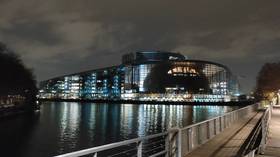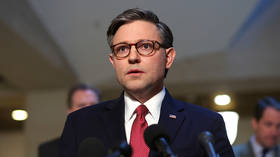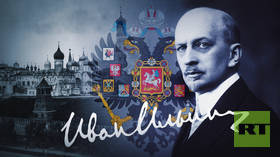UK government keeps secret files on critics – Observer

At least 15 British government departments have been engaged in a deliberate social media and internet profiling campaign against public experts in various fields, to prevent critics from speaking at cabinet-sponsored events, the Observer reported on Saturday, citing a trove of data it had seen.
The government officials in each department had specific guidelines regulating what exactly they should look for and requesting them to compile and keep “secret files” on speakers deemed to be critical of the cabinet, the paper said.
The profiling usually involved checking a person’s Twitter, Facebook, Instagram and LinkedIn accounts as well as doing a Google search on such individuals using keywords like “criticism of the government or prime minister.” The officials were then advised to look through up to 10 pages of the search results or a period of between three and five years, the report said.
The UK Education Department – one of those engaged in the profiling campaign, according to the Observer – outright denied resorting to such practices in a response to the freedom of information request filed by the Privacy International group last year. The group was investigating social media monitoring by the government at that time.
“Making a concerted effort to search for negative information in this way is directed surveillance,” the Privacy International legal director, Caroline Wilson Palow, told the Observer.
Information on the scheme was shared with the paper by a law firm, Leigh Day, that is currently pursuing legal action against the government on behalf of at least two persons affected by such practices.
“This is likely to have impacted large numbers of individuals, many of whom won’t know civil servants hold secret files on them. Such practices are extremely dangerous,” Tessa Gregory, a partner at Leigh Day, told the Observer. The lawyer maintained that such hidden checks violate data protection and potentially human rights laws.
One of those who hired Leigh Day was Dan Kaszeta, a chemical weapons expert and an associate fellow at the Royal United Services Institute (RUSI), one of the UK's leading security think tanks. “The full extent of this is shocking and probably not fully known. I was lucky enough to be given clearcut, obvious evidence,” he told the paper, adding that he was also aware of 12 other experts who had found out that the government had been blacklisting them.
According to Kaszeta, he received a public apology from the government in July and was informed in August that the 15 departments in question had withdrawn those guidelines pending a Cabinet Office review.
A spokesman for the Cabinet Office told the Observer that the government was “reviewing the guidance and have temporarily withdrawn it to prevent any misinterpretation of the rules.”














